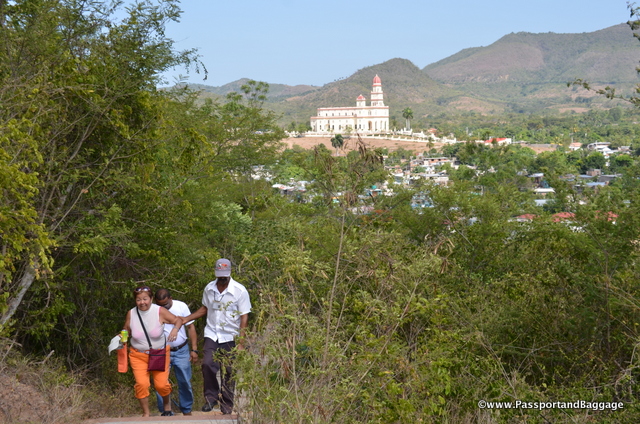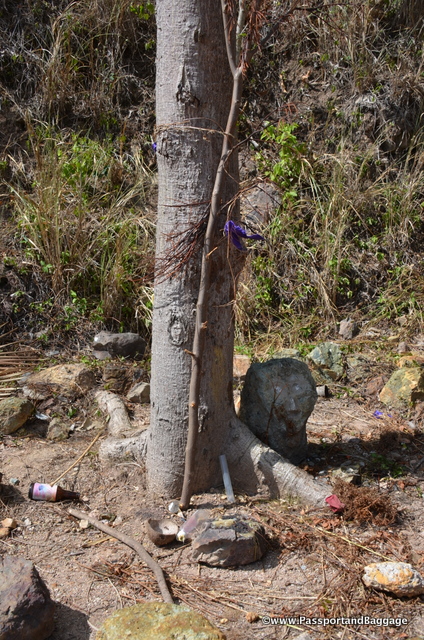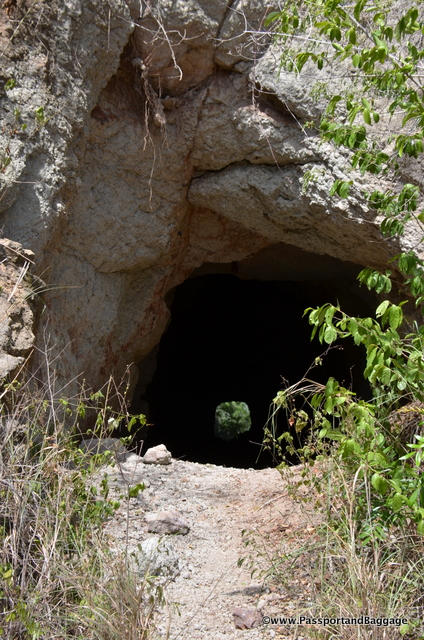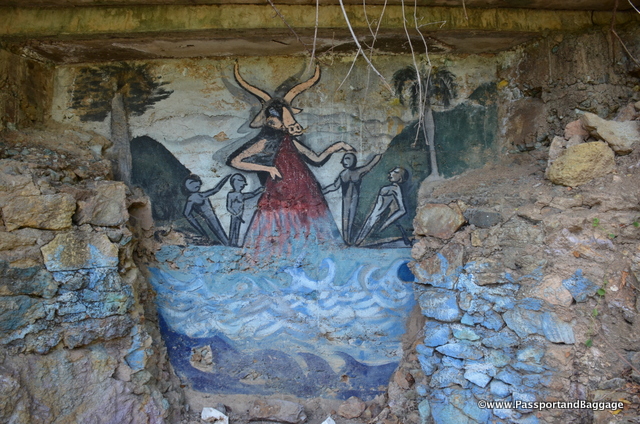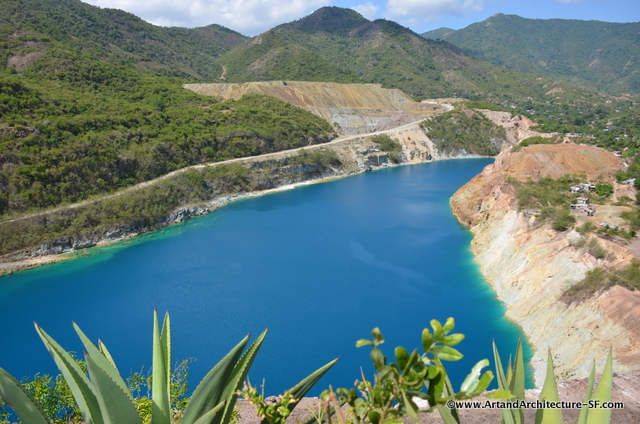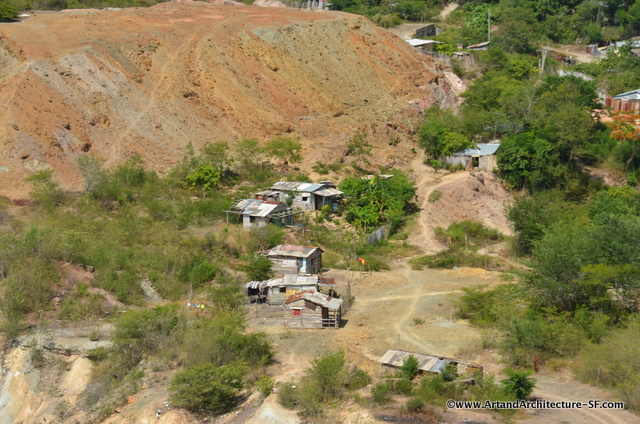Once you leave the Cathedral in El Cobre, and if you are willing to walk 400 steps, be certain to visit the Monumento al Cimmarón.
You very well may be met at the bottom of the stairs by a “guide”. He will take you off the beaten path to see this “holy” tree. It is a site of Santeria gathering in July, the Fiesta del Caribe.
Further up the “off path” trail you will find many caves. The guide will tell you the Cimmaróns built them, but I have a bigger suspicion they were dug while this area was being mined for copper.
Just before you get to the top, if you remain on the “off the track” direction you will come upon this mural. I know nothing about it, and neither did my “guide”.
Your reason for the climb is several fold, but most important it is to visit “El Monumento al Cimarron” (the Monument to Runaway Slaves), a towering sculpture created in bronze and iron, built to honor one of the earliest slave revolts that took place in the country.
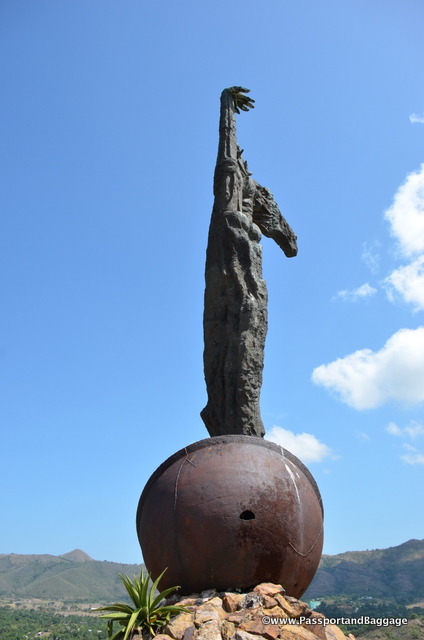 This region, was the scene of many acts of insubordination and mass slave escapes in the years 1673, 1691, 1731, 1737 and 1781 and an uprising on July 24, 1731.
This region, was the scene of many acts of insubordination and mass slave escapes in the years 1673, 1691, 1731, 1737 and 1781 and an uprising on July 24, 1731.
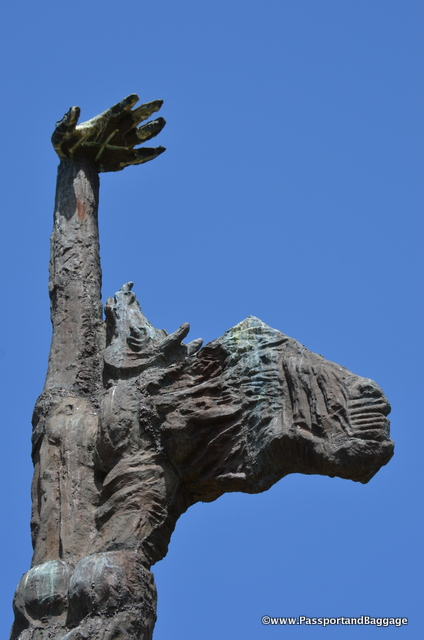 You can read all about the sculpture and the sculptor here.
You can read all about the sculpture and the sculptor here.
The other reason to make this trek is the view.
The town of El Cobre was founded in 1550 as a Spanish copper mine, worked by slaves and Indians, and mining continued until 2001. Once the mine was closed the quarry turned into an enormous pit, that is the lake you see. The water is very high in minerals, especially sulfurs.
The environmental damage is evident, but can be mistaken for the poverty that sits above it.
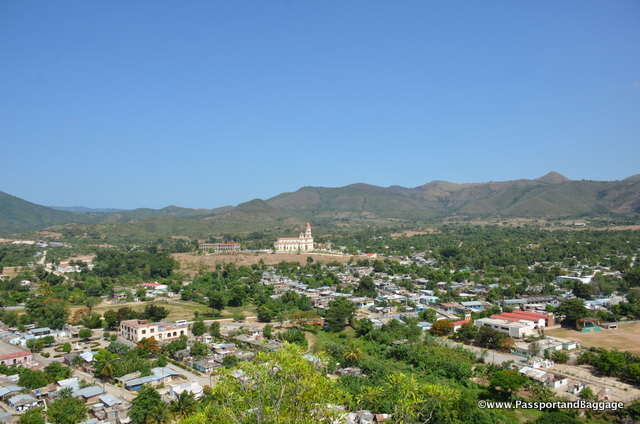 You are rewarded for your efforts with stunning views of the Sierra Maestra Mountains, the cathedral and the town of El Cobre.
You are rewarded for your efforts with stunning views of the Sierra Maestra Mountains, the cathedral and the town of El Cobre.
If you do go, take water, and if you use the guide, tip him at least 1CUC, it is a long hot walk especially in the summer.
